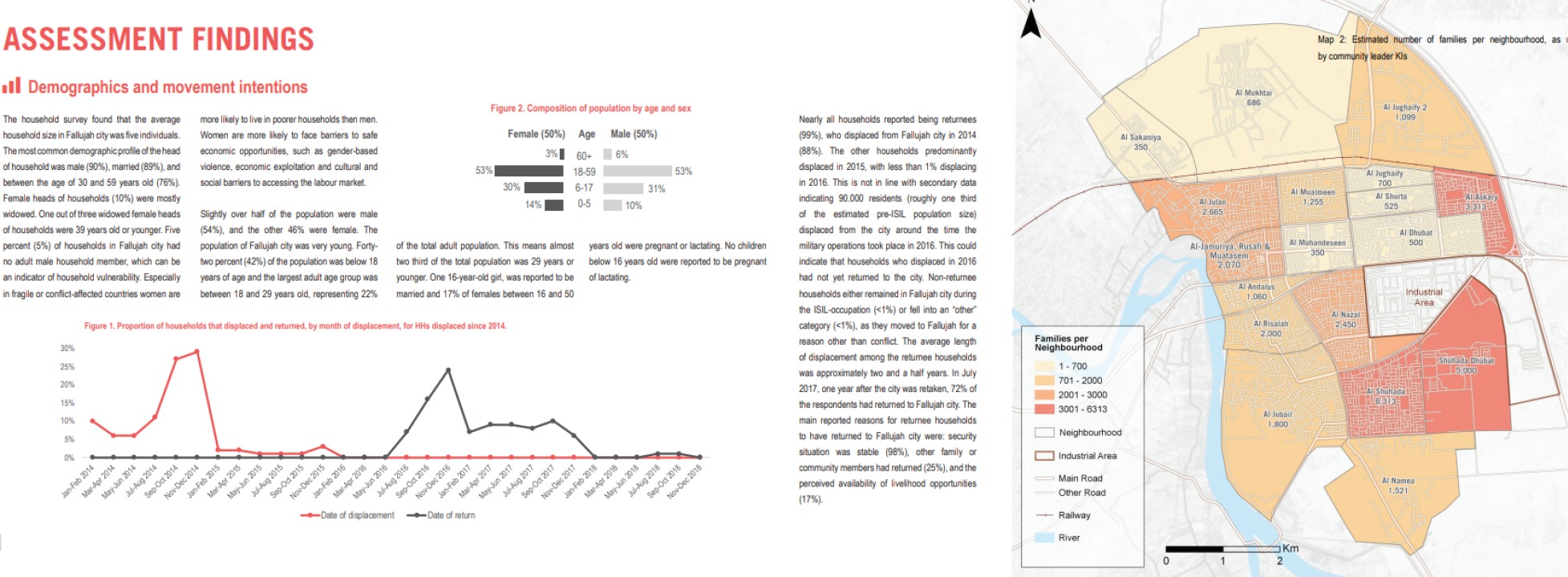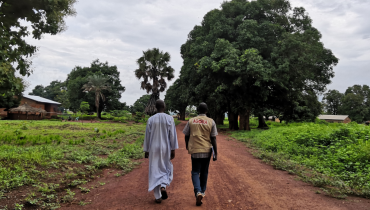The raison d’être of IMPACT Initiatives is simple: to shape humanitarian practices through informing humanitarian decision-making. Most of this work is carried out through IMPACT’s humanitarian data initiative REACH, which focuses on the gathering of primary data and using innovative tools to fill pressing information gaps. Even though the mission of IMPACT and its initiatives is clear, approaches are continuously redefined by the rapid changes seen in humanitarian contexts. One of these changes is urbanisation.
By 2050, 70 percent of the world’s population will be living in urban areas, and accelerated urbanisation is particularly shaping the reality of many lower-income countries, where urban populations have grown by 300 percent in the last 40 years. These developments, coupled with the growing trend of urban displacement, have brought humanitarian actors face-to-face with a need to adapt humanitarian response to fit urban contexts. A figure concretising this trend is the estimate of more than 75 percent of refugees living in cities instead of dedicated settlements or camps. The need to adapt is clear and urgent.
These dynamics have set new challenges for the targeting and delivery of aid – including the need to rethink the approaches of collecting data on affected-populations. An approach gaining prominence in urban settings is that of area-based assessments (ABAs). ABAs are assessments that place the affected area into the centre or data collection and strive to gather information of all relevant populations groups residing in the given location.
For the past years, REACH has expanded its ABA portfolio by launching pilot projects in, for example, Uganda, Iraq, Afghanistan and the Central African Republic. These projects have been implemented under IMPACT’s AGORA initiative, an initiative specialised in urban response and building bridges between humanitarian actors and local authorities.

The Fallujah area-based assessment found that individuals chose to return to the city due to the improved security situation. Read the full report here.
In order to demonstrate the use and strengths of area-based information, IMPACT Initiatives and UNHCR are organising a workshop as part of the UNHCR Annual NGO Consultations. The workshop will give participants the chance to experience how to design response with the aid of area-based data – and what happens when there is none. The case is based on real-life data from Kampala, Uganda.
Thursday 4.7. at the International Conference Centre in Geneva:
Area-based Approach – A silver bullet, yet another assessment or a tool to inform response?
The session starts with a brief on area-based assessments. The briefing is followed by a workshop simulating response planning in an urban crisis, and the session will close with a restitution. The workshop is led by Vincent Annoni, Head of Programmes at from IMPACT Initiatives and Shelley Gornall, Senior Information Management Officer at UNHCR.
11.00-11.30 Overview: What is an area-based assessment and why it matters
11.30-12.40 Workshop: Responding to urban crises
12.40-13.00 Restitution
Making data count – Bringing data to planning and response
The second part of the workshop will provide practical examples on how to integrate area-based assessments to response planning. The session starts with a brief recap of the topic and an introduction to network analysis exercise. Then the floor is given to experts and practitioners who will share experiences and lessons learned on bringing area-based information to response planning. The session will close with a Q&A.
14.00-14.40 Introduction to area-based assessments and network analysis
14.40-15.40 Bringing information to practice and planning
- Emilie Poisson, Deputy Executive Director of IMPACT Initiatives
- Isabel Marquez, Deputy Director of UNHCR Americas
- Brett Moore, global lead of the Shelter and Settlements team at UNHCR
- Shelley Gornall, Senior Information Management Officer at UNHCR
15.40-16.00 Q&A
No prior knowledge of area-based assessments or humanitarian data is required.
Heading picture: UNHCR / Jim Huylebroek
For more information
UNHCR Annual Consultations programme
Case examples
- Fallujah city area-based assessment
- Understanding the needs of urban refugees and host communities residing in vulnerable neighborhoods of Kampala – A multisector analysis of the dynamics of supply and access to basic services in nine vulnerable urban settlements
- Central African Republic (in French): Plan de relèvement du 3e arrondissement de Bangui and Plan de relèvement de Kokoro-Boeing et Plateau









